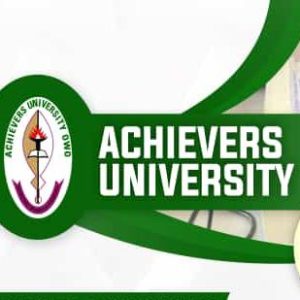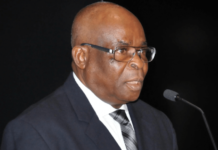
The National Assembly has acknowledged the need to scale up engagements and broad-based participation of citizens in the design and implementation of constituency projects in the country through the use of mobile application technology.
According to a statement by Chimaroke Ndugbu, Project Manager, ConsTrack and made available to THE PRECISION, the position of the legislature he said tallies with a firm position canvassed by other critical stakeholders from the media, civil society organizations, community-based organizations and representatives of the executive branch of government, among others, concerned with the constituency projects scheme.
This emerged at the end of a one-day interactive stakeholders’ roundtable on the constituency projects scheme (ConsTrack) organized by OrderPaper Nigeria in Abuja on Thursday. The event was organized with support from USAID’s Strengthening Advocacy and Civic Engagement (SACE) project.
The acknowledgement by the National Assembly was expressed by the deputy chairman of the House of Representatives committee on constituency outreach, Hon. Bede Eke.
Speaking at the roundtable, Hon. Eke, who commended OrderPaper Nigeria for the ConsTrack initiative, said it has become necessary to seize the opportunity of the proposed mobile application to scale up sensitization, engagements and appropriate exchange of information and ideas about the controversial constituency projects scheme.
The lawmaker expressed delight at the timely intervention of such initiatives as ConsTrack at a time the issue of constituency projects is generating controversies as a result of lack of sensitization and informed understanding by all stakeholders.
Describing OrderPaper Nigeria as the emergent liaison between the people and legislators, Hon. Eke said: “First, let me thank OrderPaper; the other day it was a colloquium on the budget; today it is on the constituency projects. If I have the power, I think the National Assembly should engage the organization, because you are now like a liaison between we the lawmakers and the people.
“First there is a need for sensitization of the people to know the role and the limits of the legislators, so as to remove this constant pressure on physical projects. Two years into Buhari’s administration, people asked for what he has done, ministers pointed at roads and other projects. What about lawmakers, they are also asked to give account of their stewardships, so there is nothing wrong if we attract constituency projects.
“Take my constituency for example, if not for my efforts in attracting projects, the Minister for Works, Power and Housing has no single knowledge about the needs of my people. I am not speaking for the National Assembly, but I am speaking as someone who has experience in both state House of Assembly and currently in the House of Representatives, and I can tell you we don’t award projects.
“I am not disputing certain lapses or abuse by some lawmakers, but should we be responsible for them? In fact, what we need is sensitization on the roles of the lawmaker. We need to educate the people on our primary role, let the people know it is not the role of the lawmaker to build roads and boreholes.”
The round table which was an interactive session had in attendance members from civil society organizations, government agencies such as the Bureau of Public Procurement (BPP), community-based organizations, IT experts, and members of the fourth estate of the realm.
Similar views were expressed by different speakers during the roundtable. Mr. Ayodeji Ajayeoba (Jaye Gaskia) of the Praxis Centre, on his part called for citizens’ audit of the scheme after some good understanding and sensitization has been undertaken in the course of the ConsTrack project.
In a brief introduction of the project, the Executive Director of OrderPaper Nigeria, Mr. Oke Epia gave an overview of the objectives of ConsTrack, stating that “we intend to take the conversation further, to be able to have appropriate interface between lawmakers and their constituents, and citizens in general. We need to have a template on conversation around constituency projects that is based on facts, not just hearsay; a conversation that is informed, so that we can minimize if not eliminate the controversies around constituency projects; ultimately we intend to have a platform of consensus among all stakeholders.”











